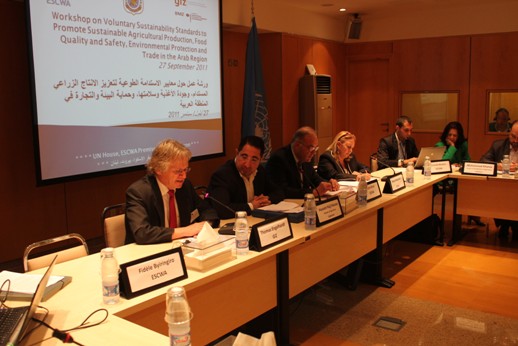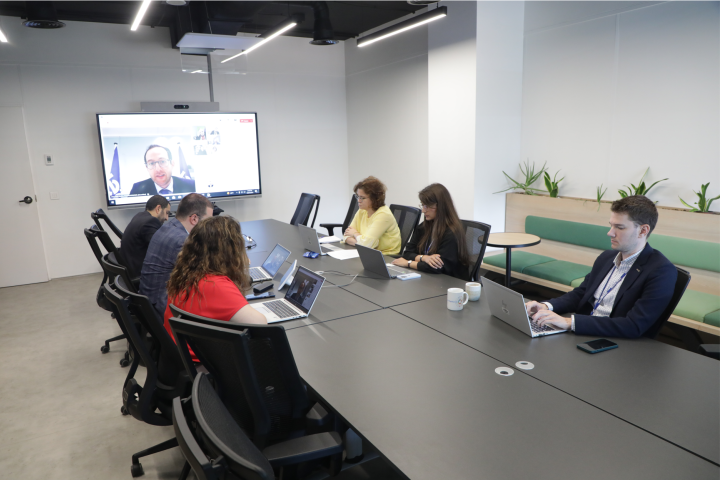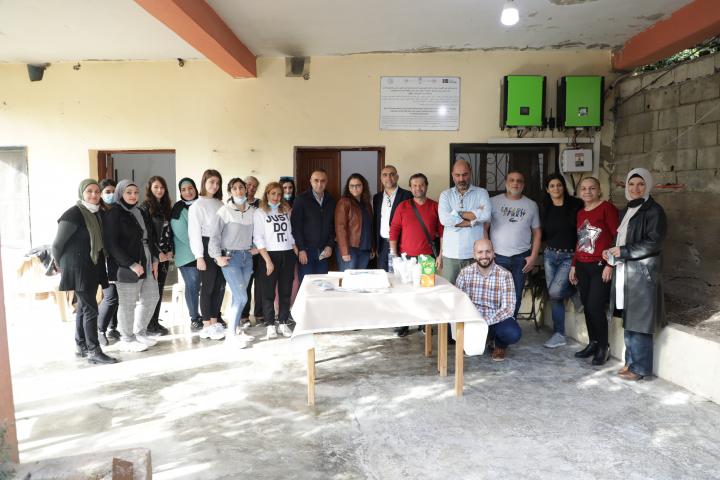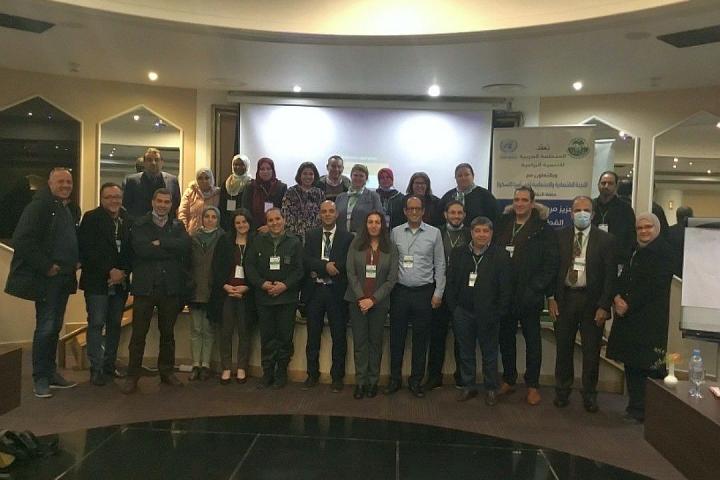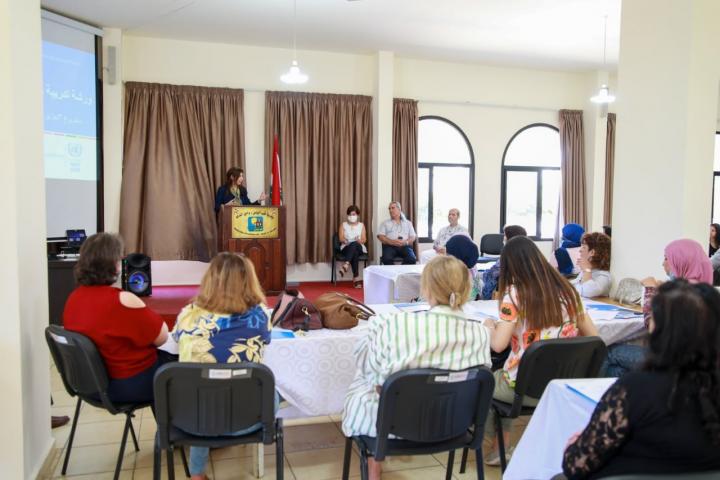ESCWA today held a workshop on “Voluntary Sustainability Standards (VSS) to promote sustainable agricultural production, food quality and safety, environmental protection and trade in the Arab Region,” at the UN House in Beirut. The workshop was organized in cooperation with the German Agency for International Cooperation (GIZ) and under the patronage of the Lebanese Minister of Agriculture Hussein Al Hajj Hassan. Statements at the opening session were delivered by Minister Al Hajj Hassan, ESCWA Deputy Executive Secretary Nadim Khouri, and GIZ Country Director for Lebanon and Syria Thomas Engelhardt. Al Hajj Hassan highlighted the importance and vitality of this workshop’s theme at the global level, especially in light of the rapidly evolving political and economic challenges facing the world. He noted that the world's population was approaching the seven-billion threshold, and that the consumer culture of all peoples have changed and their consumption patterns have become draining, which is leading to political and economic competitions. The Lebanese minister added that after years of investing natural resources during the 20th century, we have now reached a point where the whole world is sensing a threat. We therefore should, he said, identify sustainable economic systems that are environmentally friendly and socially just. Al Hajj Hassan called the workshop’s topic a highly political one, and these standards should consequently become mandatory rather than voluntary. “Are we supposed to condone greenhouse gas emissions, on the one hand, and removing forests on the other? This is what is happening in Lebanon and the region, which is witnessing desertification and economy growth at the same time,” the minister argued. Khouri said in his statement that achieving quality and safety in production processes represents a growing challenge around the world, especially in the context of globalization and rapid technological advances. He pointed out that VSS are tools to verify eco-friendly and socially responsible goods and services, and they play an important role in global trade and access to markets. ESCWA deputy executive secretary noted that applying these standards is still relatively below the required level in the Arab region, although they can provide its countries with new ways to reward producers in the region for good environmental and social performance by providing them access to markets beyond national and regional borders. “It is time to encourage relevant Arab parties to participate in developing and applying these standards so that the region does not fail to keep pace with progress in this field, in the agricultural sector and in remote rural areas,” Khouri said. In his statement, Engelhardt said the international community is facing growing pressures to secure sustainable development and economic growth because of climate change problems. Although concrete results of discussions on sustainable growth are unsatisfactory, there was a promising outcome regarding VSS, he added. Engelhardt noted that GIZ is gratified to join forces with all partners, particularly ESCWA, national and international NGOs as well as national governments, to further develop VSS. He said his agency believes in markets and the positive impact of their proper regulation based on sustainable management and production considerations. “By strengthening our partnership in VSS, we will contribute significantly to sustainable development and production,” he concluded Main themes on the workshop’s agenda include reviewing the concept and policy implications of VSS in the region; discussion of challenges and opportunities facing the adoption of VSS in the region; reviewing the application of VSS in the region through specific case studies; and discussion of prospects for streamlining VSS in the region and outlining the way forward.
Commission
Secretariat
Our Clusters
Collaborate
Resources
Key Resources
Updates
Get in touch
